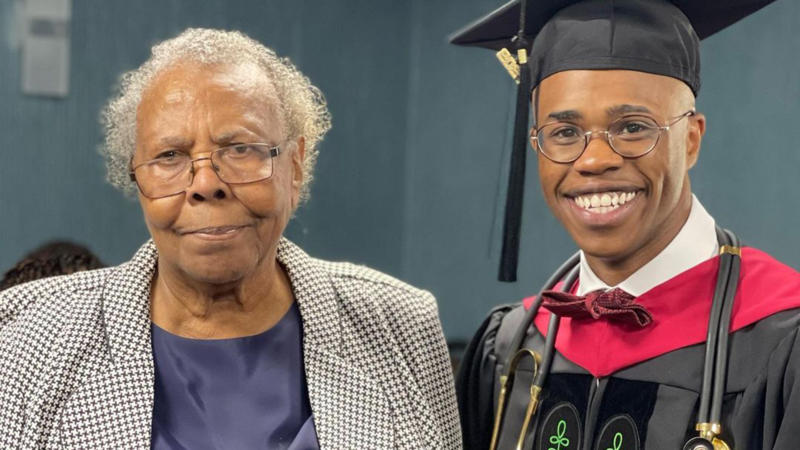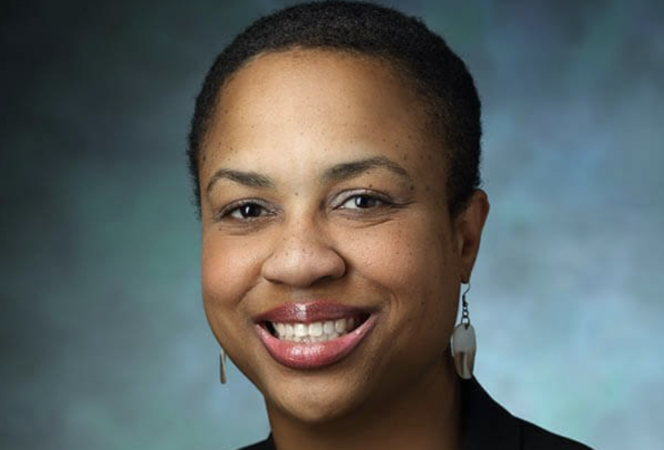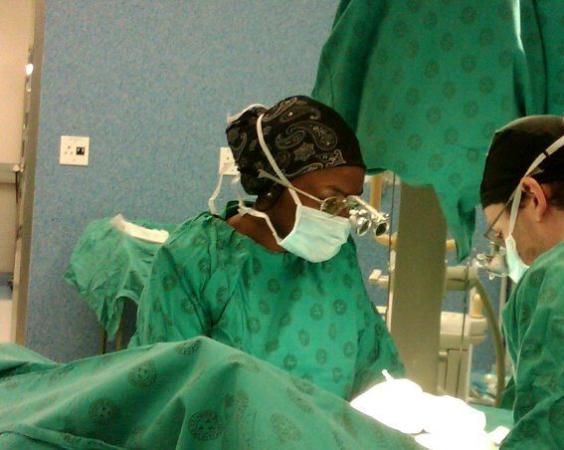Showing 4 results for:
medical field
Popular topics
All results

When you water your roots, you never know what can bloom — just look at Dr. Malone! Dr. Nelson Malone began his journey at Johns Hopkins Medicine as a student but he did not realize he had familiar connections to the hospital. Nearly 70 years ago, his grandmother Marion moved to Maryland and would find employment at Johns Hopkins Medicine cleaning floors. The moment solidified the significance of starting his career aspirations as an emergency medicine doctor at the school. “Most of the people who come from communities like I come from, you don’t see that often,” Doctor Nelson Malone said, according to WJZ-13. “We don’t see people making it out of these circumstances.”

By becoming the first African-American woman to earn an MD, Rebecca Lee Crumpler (born Rebecca Davis) paved the way for countless future physicians and medical professionals of color. Though Rebecca Cole was previously credited with this distinction, it was, in fact, Crumpler who earned this honor in 1864 (three years before Cole). Born in Delaware in 1831 , Crumpler’s parents were Absolum Davis and Matilda Weber. However, she was raised by an aunt in Pennsylvania — a woman who cared for neighbors who had fallen ill. It’s believed that the time under her aunt’s care may have influenced her career choice. She moved to Charlestown, Massachusetts in 1852 and worked as a nurse from 21 until 29. She did so without formal training as the first nursing school would not open until 1873. She also married Wyatt Lee, a former slave, shortly after she arrived in Charleston. Her efforts helped her gain acceptance and win a scholarship to the New England Female Medical College in 1860. During...

This is peak #BlackGirlMagic! Dr. Namandje Bumpus is breaking the mold by becoming the first Black woman to serve as a department chair at The Johns Hopkins University School of Medicine, reports Because of Them We Can. With a long road in academia, Bumpus hasn’t always had it easy due to Black scholars receiving lots of criticism, covert and overt forms of racism when pursuing a career in the sciences. Her career at Johns Hopkins began in 2010 where she worked as an assistant professor before ultimately working her way up to associate professor and eventually becoming the school’s first associate dean for institutional and student equity. “It was hard to be as joyful as I should have been because of the emotion that I saw happening in the world. I definitely felt a heaviness,” Bumpus said, according to Because of Them We Can. “What’s happening in the wider world parallels what’s happening in the culture of academic science, not just at Hopkins.” Last month I became the FIRST Black...

In 2017, Ncumisa Jilata became Africa’s youngest neurosurgeon at 29-years-old, after completing a five-year fellowship at the University of Pretoria located in South Africa. Dr. Jilata’s medical journey began in 2003 when she was in the 11th grade. Her rigorous path included a packed course schedule of condensing three years of biology into just one year. “I was already in Grade 11 when I decided I want to be a doctor, but at the time I wasn’t doing biology, so when I got to matric I had to do three years of biology in one year, in addition to the subjects I had already selected from Grade 10,” she told Dispatch Live. During her time in high school, Dr. Jilata developed a fascination with the brain and the neuron, which would ultimately lead her to set her sights on becoming a neurosurgeon. “During that period I discovered the concept of a neuron, which is amazing, and the fact that society as a whole is influenced and controlled solely by the existence of this structure, intrigued...